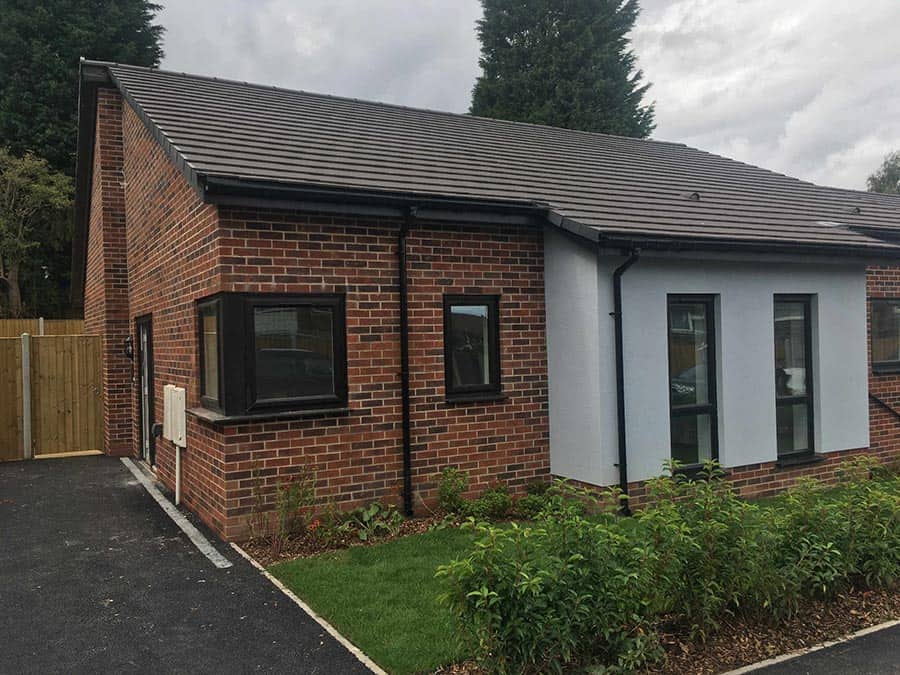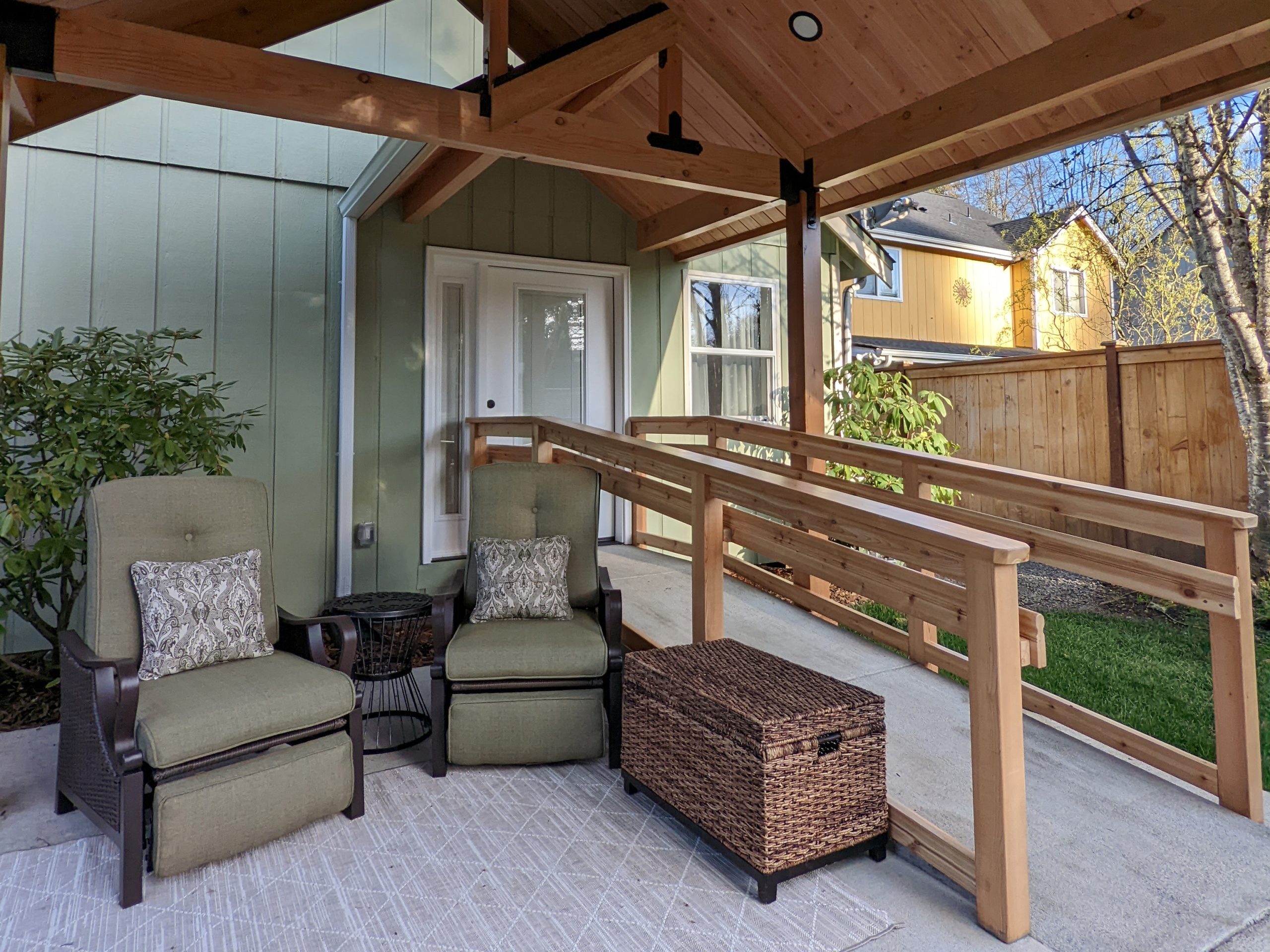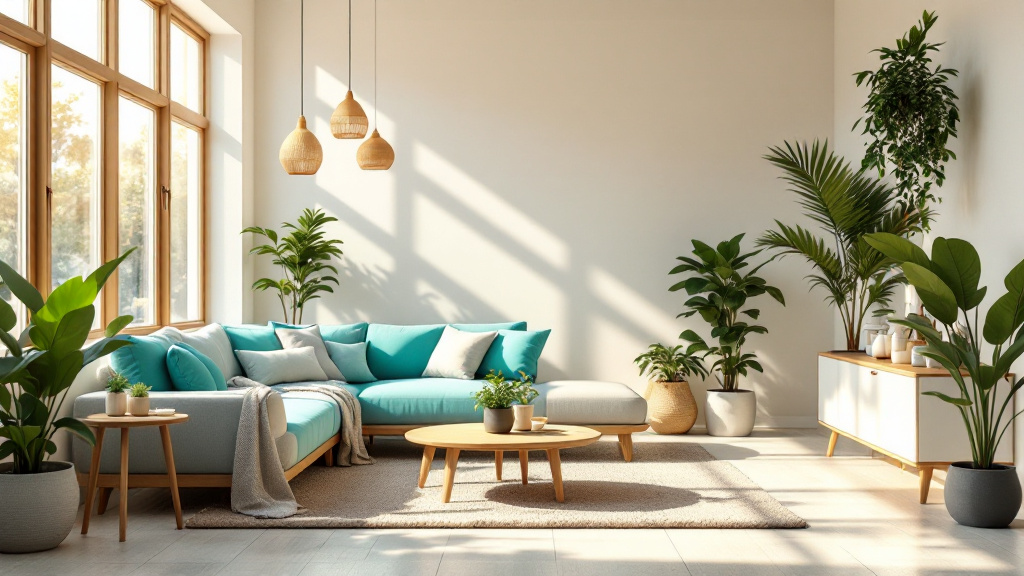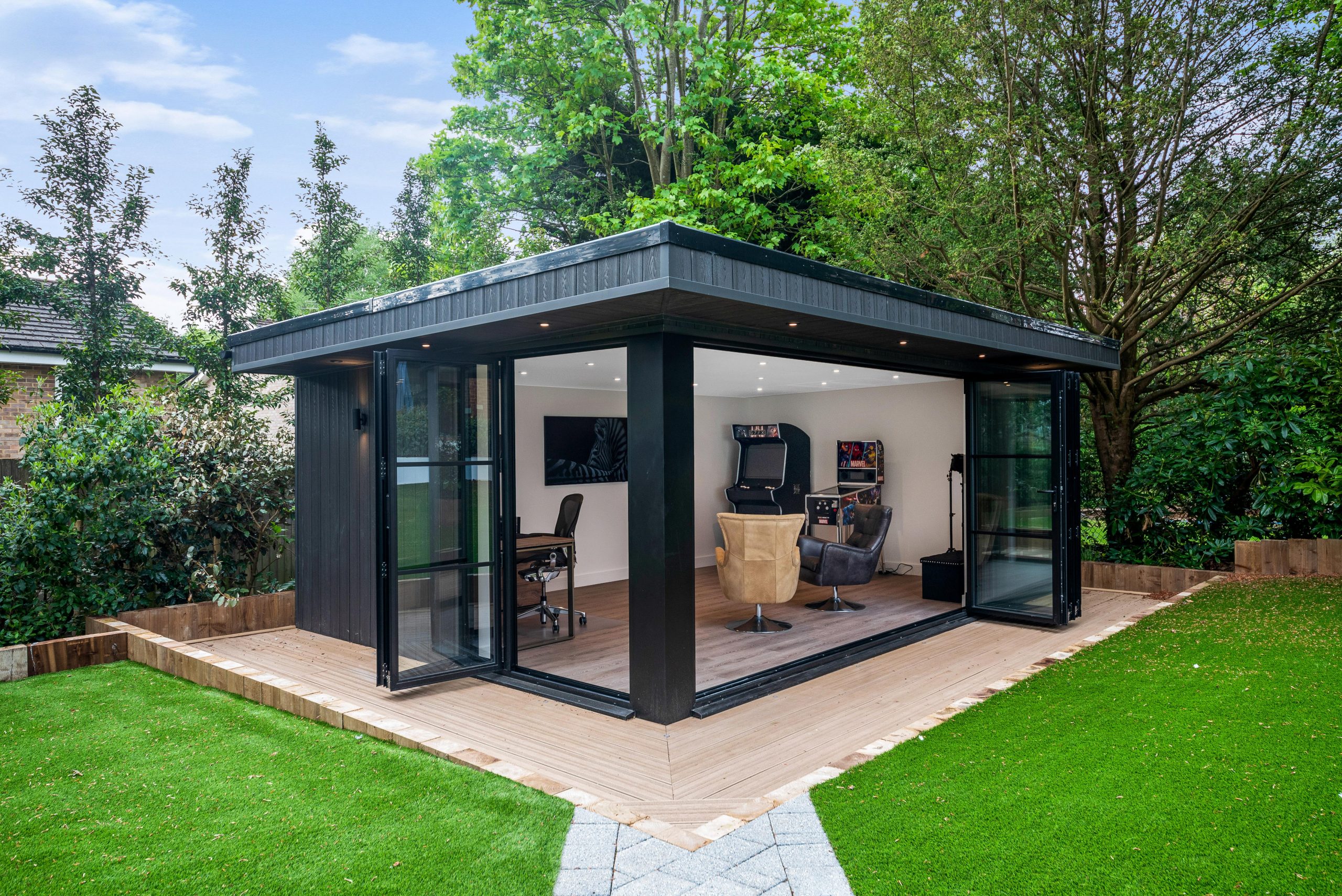Garden and Outbuilding Projects
Our blog
Latest blog posts
All the guidance and information you need to support you renovation plans.

August 14, 2025
Challenges of Retrofitting Accessibility Features in Older Homes
Adapting older homes for accessibility is essential for individuals with mobility challenges, but structural limitations, heritage restrictions, and outdated systems often make modifications complex. Retrofitting solutions include step-free access, widened doorways, and adapted bathrooms, yet these must be carefully planned to balance functionality with preserving the home’s character. Compliance with Part M of the Building Regulations and budget constraints add further challenges. Loomin simplifies this process by connecting homeowners with fixed-fee, Qualified architects specialising in accessibility. From comparing quotes to managing compliance, Loomin ensures a seamless and expert-led approach to creating a safe, inclusive, and future-proof home.
Accessibility and Adaptation Projects

August 14, 2025
Outdoor Accessibility Solutions
Creating an accessible outdoor space ensures individuals of all mobility levels can navigate their surroundings safely and comfortably. Whether for private gardens or communal areas, incorporating step-free pathways, adaptive seating, and high-visibility features promotes inclusivity and independence. Key design elements, such as non-slip surfaces, well-placed lighting, and raised garden beds, enhance usability while maintaining aesthetic appeal. However, achieving full accessibility requires careful planning, the right materials, and adherence to regulations like Part M of the Building Regulations. Challenges such as uneven terrain, weather considerations, and budget constraints can complicate the process. Loomin simplifies outdoor accessibility projects by connecting homeowners with fixed-fee, Qualified architects specialising in inclusive design. From comparing transparent quotes to managing compliance and contractor selection, Loomin streamlines the entire process, ensuring a seamless transformation of outdoor spaces into functional, accessible environments. If you're planning an outdoor accessibility upgrade, explore Loomin today to find the right expert for your project.
Accessibility and Adaptation Projects

August 14, 2025
Sensory-Friendly Design Principles
Creating a sensory-friendly home environment is essential for individuals with sensory sensitivities, including those with autism, ADHD, and sensory processing disorders. Thoughtful design choices can significantly improve comfort, reduce stress, and enhance overall well-being. A well-designed home should support relaxation, concentration, and daily routines by minimising sensory triggers and promoting a sense of calm. Whether building a new home or adapting an existing one, incorporating sensory-friendly elements can create a more inclusive and supportive living environment for all residents.Loomin provides an excellent solution for homeowners by connecting them with fixed-fee, Qualified architects experienced in sensory-friendly design. These professionals ensure that every aspect of the home—from lighting and acoustics to layout and material choices—is tailored to suit individual sensory needs. By working with expert architects, homeowners can create a functional, comfortable space without the stress of navigating complex design decisions alone.Key Principles of Sensory-Friendly Design1. Controlled LightingLighting plays a crucial role in sensory comfort, as excessive brightness or harsh artificial light can cause discomfort. Maximising natural light through large windows and skylights helps create a soothing atmosphere while reducing reliance on artificial lighting. Adjustable lighting solutions, such as dimmable LED lights, allow residents to customise brightness levels based on their preferences and sensory needs.Fluorescent lights, known for their harsh glare and flickering, should be avoided in favour of warm, soft lighting options that provide a gentler, more even illumination. Additionally, task lighting, such as under-cabinet or reading lights, can help create focused lighting areas without overwhelming the entire space.2. Acoustic ComfortSound sensitivity is a common challenge for individuals with sensory processing difficulties, making acoustic control a key aspect of home design. Using soundproofing materials, such as insulated walls and double-glazed windows, can significantly reduce external noise and create a quieter indoor environment. Soft furnishings, including carpets, curtains, and upholstered furniture, help absorb sound and minimise echoes within the home.Designating quiet zones or sensory retreat areas allows residents to escape noisy environments and decompress when needed. These spaces should be located away from high-traffic areas, with additional soundproofing measures like acoustic panels or noise-cancelling technology to enhance relaxation.3. Thoughtful Colour SchemesColour has a profound effect on mood and sensory perception, making it essential to choose calm and neutral tones for a sensory-friendly home. Muted colours, such as soft pastels and earthy shades, create a sense of tranquillity and reduce visual overstimulation. Using consistent and harmonious colour palettes throughout the home can help maintain a cohesive and balanced environment.Avoiding bold, high-contrast patterns is crucial, as they can be overwhelming and distracting. Instead, subtle textures and monochromatic schemes provide visual interest without creating unnecessary sensory stimulation. Homeowners should consider individual preferences, as some may find cool tones more calming, while others may prefer warmer hues for comfort.4. Texture and Tactile ConsiderationsThe choice of materials and textures in a home can greatly impact sensory experiences. Natural materials, such as wood, cotton, and wool, provide a soothing tactile experience, helping to create a comfortable and grounding environment. Soft, smooth surfaces are often preferred over rough or synthetic materials, which can feel harsh and uncomfortable.Variety in texture should be carefully considered, ensuring it adds comfort without creating sensory overload. For example, incorporating plush rugs, smooth countertops, and fabric-covered furniture can enhance tactile comfort while maintaining an aesthetically pleasing space. Providing options for different textures throughout the home allows residents to interact with their surroundings in a way that feels most comfortable to them.5. Organised and Clutter-Free SpacesA structured, clutter-free environment is essential for reducing sensory overload and promoting a sense of order. Open layouts with clearly defined areas help create a predictable and easy-to-navigate home, minimising visual distractions. Built-in storage solutions, such as fitted wardrobes and concealed shelving, help keep belongings neatly organised while maintaining a streamlined aesthetic.Labelled bins, storage cubes, and divided drawers further enhance organisation and accessibility, particularly for individuals who thrive on routine and visual order. Keeping high-traffic areas free from unnecessary clutter reduces anxiety and allows for smooth movement throughout the home.6. Air Quality and VentilationGood air quality is crucial for overall well-being, particularly for individuals with sensory sensitivities to odours, dust, and chemicals. Installing high-quality air filtration systems helps remove allergens and pollutants, ensuring a cleaner and healthier indoor environment.Using low-VOC (volatile organic compound) paints and building materials prevents exposure to strong chemical smells that may trigger discomfort or headaches. Additionally, incorporating indoor plants not only enhances aesthetics but also naturally improves air quality by filtering toxins and increasing oxygen levels. Proper ventilation, including well-placed windows and extractor fans, ensures a continuous flow of fresh air, creating a more refreshing and breathable living space.Challenges in Sensory-Friendly Home DesignBalancing Aesthetics and FunctionalityDesigning a home that is both visually appealing and sensory-friendly can be challenging, requiring careful material and colour choices. Many conventional design trends prioritise bold colours and striking patterns, which may not be suitable for individuals with sensory sensitivities. Finding a balance between a calming atmosphere and an aesthetically pleasing space often requires custom solutions, such as using textured fabrics for visual interest instead of bold prints. Additionally, integrating sensory-friendly elements like acoustic panels or dimmable lighting without compromising the overall design requires thoughtful planning and expert architectural input.Customising for Individual NeedsSensory preferences vary greatly from person to person, necessitating flexible and tailored solutions to accommodate different sensitivities. While some individuals may find soft lighting and muted colours calming, others may prefer brighter spaces with more contrast to aid in focus and engagement. Designing a space that works for all occupants requires adjustable features, such as lighting controls, movable partitions, and soundproofing options that can be modified as needed. Engaging with an experienced architect ensures that the home’s design remains adaptable while meeting the specific sensory needs of its residents.Budget ConsiderationsSome sensory-friendly features, such as high-quality soundproofing or advanced air filtration, can add to costs, requiring careful budgeting. Homeowners may need to prioritise essential modifications, such as noise reduction measures or low-VOC materials, while considering lower-cost alternatives for non-essential features. Choosing multi-functional elements, like blackout curtains that also provide sound insulation, can help maximise the budget without compromising comfort. Seeking guidance from a fixed-fee architect through Loomin can help homeowners find cost-effective solutions that balance affordability with long-term benefits.Retrofitting Existing HomesAdapting an older home to meet sensory-friendly standards can pose design and structural challenges, especially if major modifications are needed. Many traditional homes were not built with sensory sensitivities in mind, making retrofitting complex and sometimes costly. Limited space may restrict the ability to add insulation, replace flooring, or modify layouts, requiring creative design solutions to improve sensory comfort without extensive structural changes. Working with a specialist architect can help homeowners identify feasible upgrades, such as removable acoustic panels or smart lighting solutions, to improve the sensory environment without a full-scale renovation.How Loomin Supports Sensory-Friendly Home DesignNavigating the complexities of sensory-friendly home design requires expert input, and Loomin makes this process easier by connecting homeowners with fixed-fee, Qualified architects. These professionals have experience in inclusive and accessible design, ensuring that every aspect of a home is carefully planned to support sensory well-being.With Loomin, homeowners can:Compare Fixed-Fee Quotes – Find architects with expertise in sensory-friendly design at transparent prices.Manage the Architect Relationship – Oversee design reviews, virtual meetings, and project progress through a centralised platform.Access Trusted Contractors – Use contractor-matching tools to find skilled professionals for modifications and installations.Streamline Compliance and Documentation – Keep all essential project documents, approvals, and design plans in one place for a hassle-free process.ConclusionDesigning a sensory-friendly home is an investment in comfort, well-being, and inclusivity, ensuring that all residents feel safe, relaxed, and supported in their living environment. By incorporating key principles such as controlled lighting, acoustic comfort, clutter-free organisation, and air quality improvements, homeowners can create a home that minimises stress and sensory overload while enhancing focus and relaxation. Thoughtful material choices, personalised design solutions, and well-structured spaces play a crucial role in ensuring that a home meets the unique needs of individuals with sensory sensitivities. Whether adapting an existing property or planning a new build, a well-designed sensory-friendly home can significantly improve quality of life, fostering a harmonious and comfortable atmosphere for everyone.With Loomin, homeowners can easily connect with experienced, fixed-fee, Qualified architects who specialise in sensory-friendly design, ensuring a seamless and well-informed home improvement experience. Whether you're planning a complete renovation, making minor adjustments, or integrating tailored solutions, Loomin provides a convenient and efficient way to access professional expertise. By offering transparent pricing, project management tools, and access to trusted contractors, Loomin streamlines the entire design process, making it easier to achieve a home that is both functional and supportive of sensory needs. If you're considering adapting your home to be more sensory-friendly and inclusive, explore Loomin today and find the right architect to guide you through the process with confidence.expert guidance and tailored solutions to make the process efficient, stress-free, and perfectly suited to your needs. If you're considering making your home more sensory-friendly, explore Loomin today to find the right expert for your project.
Accessibility and Adaptation Projects
.png)
